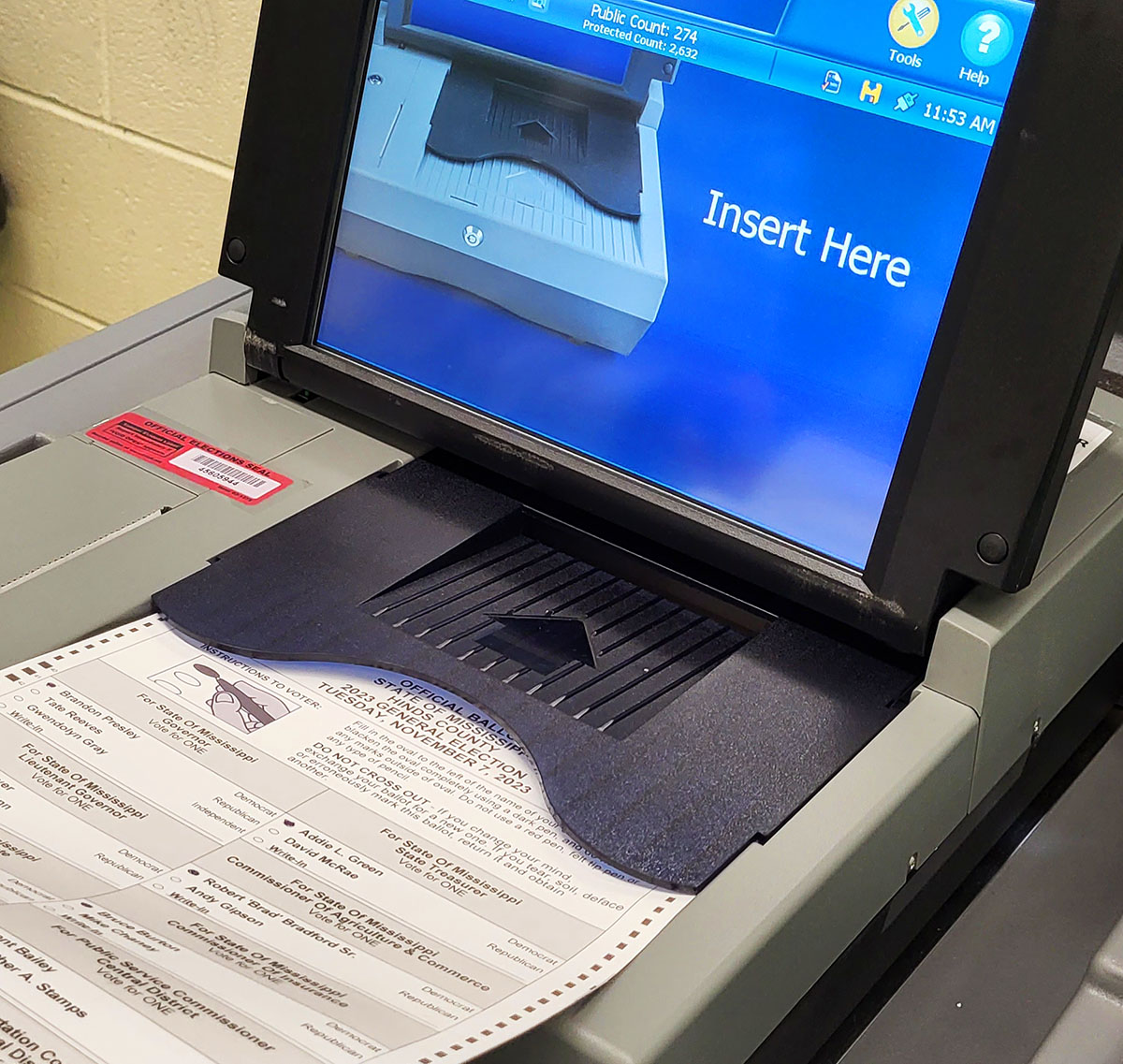Mississippi can continue to impose a lifetime ban on voting for people convicted of certain felonies, including some non-violent felonies, the full panel of the U.S. 5th Circuit Court of Appeals ruled Thursday.
The opinion of the full panel reverses an August 2023 ruling by a three-judge panel of the 5th Circuit finding the lifetime ban unconstitutional because it inflicted cruel and unusual punishment.
The full panel said a lifetime ban on voting was not punishment, but “served as a nonpenal, regulatory purpose.”
The majority opinion was written by Edith Jones, an appointee of Republican Ronald Reagan in the 1980s. She was joined by 12 members of the Court in finding that the section of the Mississippi Constitution imposing the lifetime ban was not in violation of the U.S. Constitution. Two of those 12, including one Democratic appointee, Irma Ramirez, agreed with the results, but did not sign on to Jones’ opinion.
Six members of the Court, all Democratic appointees, said Mississippi’s lifetime ban unconstitutional. Their dissenting opinion was written by James L. Dennis.
“Voting is the lifeblood of our democracy and the deprivation of the right to vote saps citizens of the ability to have a say in how and by whom they are governed,” Dennis wrote. “Permanent denial of the franchise, then, is an exceptionally severe penalty, constituting nothing short of the denial of the democratic core of American citizenship.”
But the majority said the framers of the Constitution in banning cruel and unusual punishment were looking to ensure laws were not passed permitting punishment “such as gibbeting (hanging), burning at the stake, embowelling, beheading and quartering.”
Jones wrote that those wishing to end Mississippi’s lifetime voting ban for people convicted of certain felonies should “do the hard work of persuading your fellow citizens the law should be changed.”
If the lifetime ban is repealed it should be done by the Legislature and “not by judicial fiat,” she wrote.
The U.S. Supreme Court has ruled in past cases that a lifetime ban on voting for people convicted of certain felonies was not unconstitutional. But a minority of the 5th Circuit pointed out that the Supreme Court in past instances has changed its mind and found certain punishments, such as the execution of minors, cruel and unusual punishment after states began to ban such action.
When the Supreme Court found a lifetime ban on voting constitutional, 27 states imposed such punishments, Dennis wrote. But now, he pointed out 39 states did not impose such a ban. Mississippi is one of only two states, Dennis wrote for the minority, to impose a lifetime ban for people convicted for the first time of non-violent felonies.
It is likely the 5th Circuit ruling will be appealed to the U.S. Supreme Court.
The lawsuit was filed by the Southern Poverty Law Center, Simpson Thacher & Bartlett LLP and others on behalf of Mississippians who have lost their voting rights. The office of Attorney General Lynn Fitch opposed the lawsuit on behalf of the state.
The framers at the time admitted they placed the lifetime ban in the Mississippi Constitution as a tool to keep Black people from voting. Those crimes placed in the Constitution for the ban are bribery, theft, arson, obtaining money or goods under false pretense, perjury, forgery, embezzlement, bigamy and burglary.
Under the original language of the constitution, a person could be convicted of cattle rustling and lose the right to vote, but those convicted of murder or rape would still be able to vote — even while incarcerated. Murder and rape have since been added as disenfranchising offenses.
The lifetime ban was challenged in an earlier lawsuit on the grounds it was imposed to deny the vote to Black Mississippians. The 5th Circuit rejected that argument and the Supreme Court refused to hear the case.

